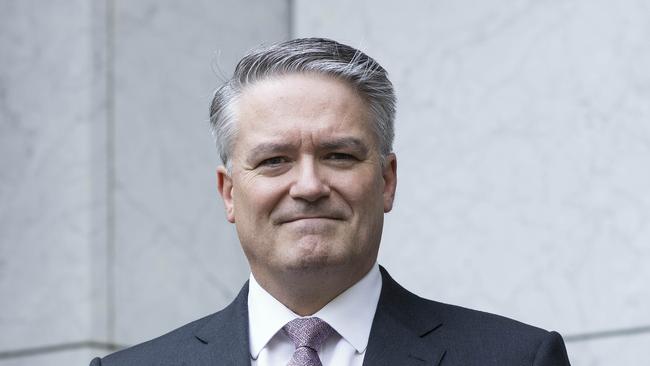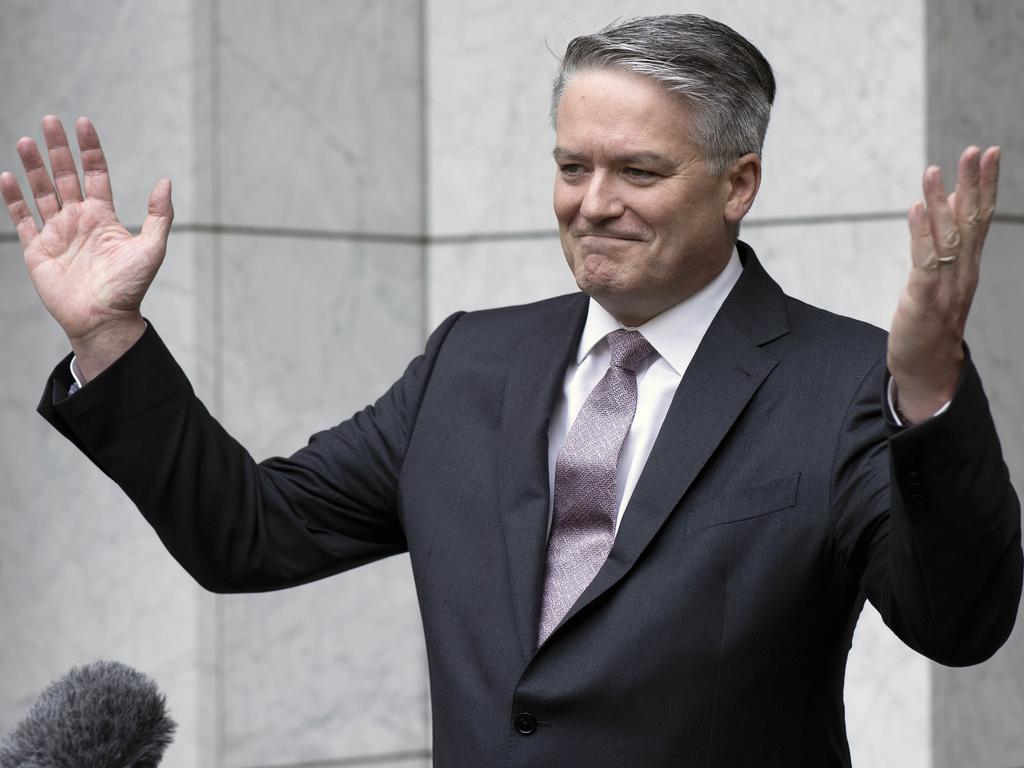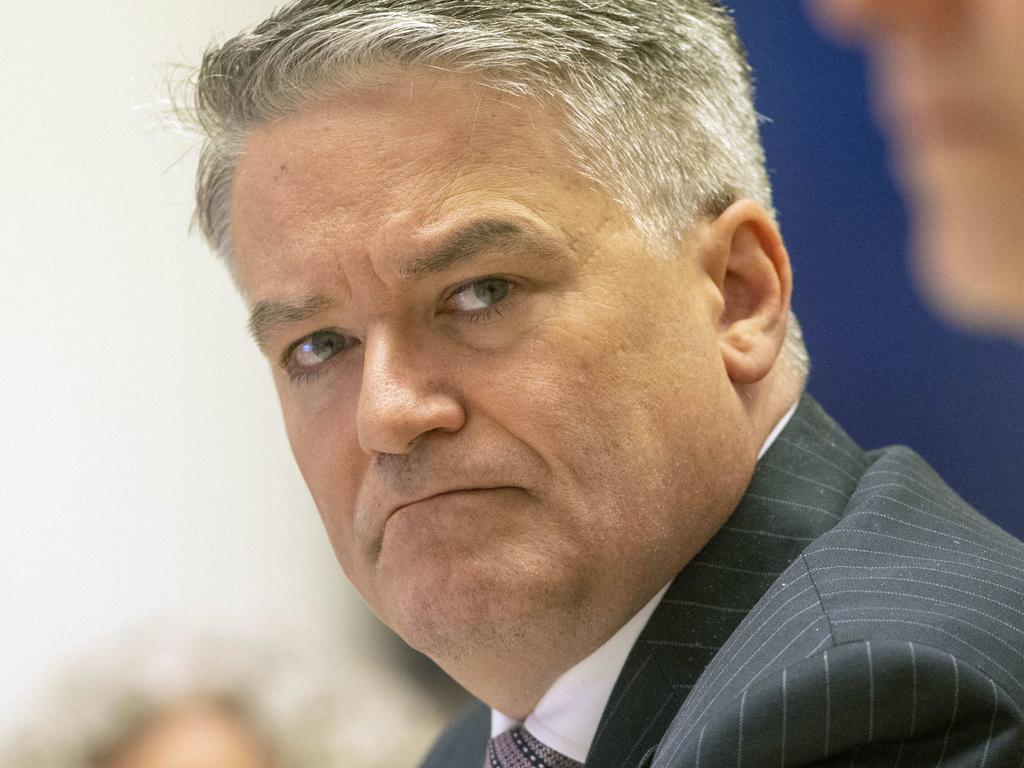OECD top post: And the winner is … Australia’s Mathias Cormann
Australia has pulled off a stunning diplomatic coup with Mathias Cormann set to be announced as secretary-general of the OECD.

Australia has pulled off a stunning diplomatic coup with Mathias Cormann set to be announced as secretary-general of the Organisation for Economic Co-operation and Development, delivering the Asia-Pacific region’s first head of the Paris-based body.
The appoinment is a major vindication of Scott Morrison’s push to win the influential economic post.
Mr Cormann thanked the PM and OECD member countries during a press conference in Perth on Saturday, calling on them to “work with me” in his role and committing to finding the best policy solutions for the region.
“I’d like the Prime Minister for the amazing support he has provided for this campaign, as well as Premier Mark McGowan, and our governor Kim Beazley,” he said.
“It is an incredibly exciting opportunity, and there’s a big job to be done to help drive stronger, cleaner, fairer, more inclusive growth.”
Mr Cormann said his experience serving as the finance minister would help him add value to policy considerations in the new role.
He also singled out climate change as a “significant economic and environmental” challenge for the world.
“We need genuine and ambitious activity on climate change.”
“It requires a globally coordinated approach to be effective.”
Mr Cormann, who served in federal parliament from 2007 until his retirement late last year, won the tightly contested contest following an exhaustive process pitting him against the preferred European candidate, Sweden’s Cecilia Malmstrom.
Australia’s longest-serving finance minister steps into the OECD role despite a campaign questioning his climate change credentials and a push to select the first female secretary-general.
The Weekend Australian understands the Prime Minister played a central role in Mr Cormann’s successful OECD bid, calling more than 50 world leaders over the course of the last few months. Mr Cormann, regarded as one of Australia’s most accomplished finance ministers, also ran a tireless international lobbying effort to secure the posting, having faced resistance from some European countries.
US support was considered critical to his success. He will replace Angel Gurria of Mexico, with his five-year term commencing on June 1.
As secretary-general, Mr Cormann will lead the OECD Secretariat and Council, which is the organisation’s overarching decision-making body composed of ambassadors from 37 member countries and the European Commission.
Mr Cormann described it as “a privilege and an honour to take on the leadership of the OECD.”
“It brings together like-minded countries from around the world committed to developing and delivering better policies for better lives,” he said, describing himself as “ambitious” for the OECD. “It provides a great platform for international cooperation and best practice policy development, from the foundation of a shared commitment to democracy, human rights, the rule of law, market-based economic principles and a rules-based international order.”
Mr Cormann won the job after the initial field of 10 candidates was narrowed to two. Nominated by Sweden, Dr Malmstrom served as European trade commissioner and European home affairs commissioner, as well as minister for EU affairs in the Swedish government between 2006 and 2010. She was also a member of the European parliament between 1999 and 2006.
The last European to hold the job was Jean-Claude Paye in 1996. Mr Cormann’s pathway to success was understood to be contingent on winning support from Asia-Pacific and Latin American nations, with help from eastern Europe members.
The last time an Australian headed a major international economic organisation was Sydney-born Sir James Wolfensohn, who was appointed by the US as World Bank group president from 1995 to 2005.
The Prime Minister, who provided government support to assist Mr Cormann’s candidacy during the COVID-19 pandemic, on Friday confirmed the OECD selection process had “gone into extra time”. “It’s into golden point. And while Mathias Cormann may not have been an NRL fan but an AFL fan, I’m sure he is getting all the support that is necessary,” Mr Morrison said.
“And I really want to thank him and the whole team and all of those around the world that I’ve engaged with over these many months.
“The OECD brings together like-minded countries from all around the world, like minded-liberal democracies from the Americas, from Asia-Pacific, from Europe and the United Kingdom.”
Mr Morrison said Australia had been an OECD member since its foundation and “we’re very pleased for the first time to be putting ourselves forward for such a unique international role”.
In November, Mr Morrison defended the use of a taxpayer-funded RAAF jet to support Mr Cormann’s campaign, warning there was an “extremely high” risk he could have contracted COVID-19 if he had flown on commercial flights.
Climate and environmental groups had written to the OECD voicing their concerns about Mr Cormann’s candidacy in a March 4 letter arguing “the public record of Mathias Cormann should preclude him from being selected”.
The letter cited his role as finance minister in the Abbott government which, in July 2014, “abolished the country’s carbon pricing scheme”. It was signed by Kelly O’Shanassy, chief executive of the Australian Conservation Foundation; Matt Brennan, chief executive of the Wilderness Society Australia; Julie-Anne Richards, the executive director of the Climate Action Network Australia and David Ritter, the chief executive of Greenpeace Australia Pacific, among others.
The letter claimed Mr Cormann was not a “suitable candidate” and singled him out for describing Australia’s emissions trading scheme as “an act of economic self-harm which does nothing to help reduce global emissions”. Greens leader Adam Bandt was also opposed to Mr Cormann taking the OECD top job, writing to member nations urging them to support alternative candidates.
With Jess Malcolm






To join the conversation, please log in. Don't have an account? Register
Join the conversation, you are commenting as Logout